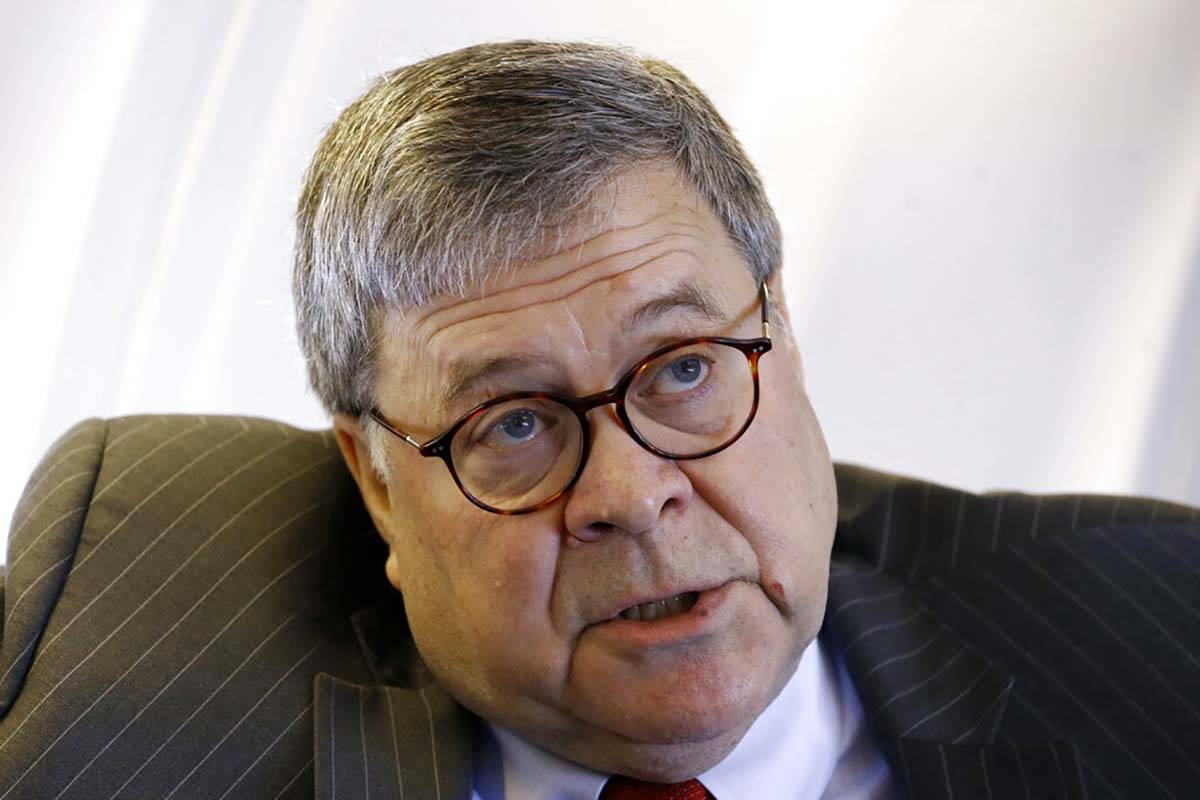EDITORIAL: Pandemic restrictions and constitutional rights
The coronavirus pandemic has prompted state and local officials across the country to impose drastic measures that are often at odds with the values of a free society. In general, however, governments have broad leeway during time of emergency to exercise temporary authority over typically protected activities.
But if Americans are to preserve our freedoms in the long run, such authority must be exercised cautiously and within certain boundaries.
For the most part, that has been the case in Nevada and elsewhere. Still, it was heartening to see U.S. Attorney General William Barr announce this week that he had asked federal prosecutors to “be on the lookout for state and local directives that could be violating constitutional rights and civil liberties of individual citizens.”
Perhaps the most high-profile conflicts have surfaced regarding the First Amendment’s freedom of religion protections. A federal judge in Kentucky struck down a prohibition in that state that banned drive-through Easter services. A church in Mississippi is currently litigating a similar issue.
But the concerns go beyond religion. In North Carolina, this week, police arrested four people during a protest in the capital against the state’s lockdown. The charges included violating an executive order involving social distancing requirements. Curtailing the First Amendment’s right to peaceably assemble — even for the stated purpose of saving lives — is constitutionally problematic.
Other examples abound. The Atlantic reported this month that officials in Newark, New Jersey, threatened to criminalize the spread of false information about the virus. Some states have tried to shut gun stores, perhaps in violation of the Second Amendment. Other states have used the crisis to limit abortion rights, which the Supreme Court has ruled are shielded by the Constitution.
There have also been suggestions that fighting this respiratory illness may require a vast expansion of the surveillance state, Fourth Amendment be damned.
“Many policies that would have been unthinkable in regular time have become commonplace in recent weeks, and we do not want to duly interfere with the important efforts of state and local officials to protect the public,” Mr. Barr said. “But the Constitution is not suspended in time of crisis. We must therefore be vigilant to ensure its protections are preserved at the same time the public is protected.”
The vast majority of Americans have been generally accepting of the extreme restrictions put in place throughout much of the country to control the spread of coronavirus. But public compliance and majority approval should not embolden policymakers to ignore the Bill of Rights. That’s why it’s good to know that the Justice Department is paying attention.

















